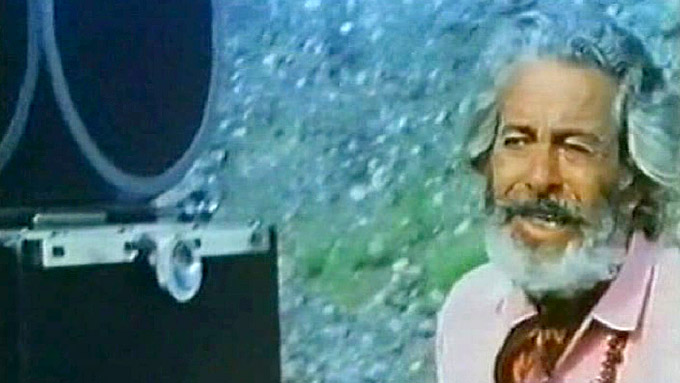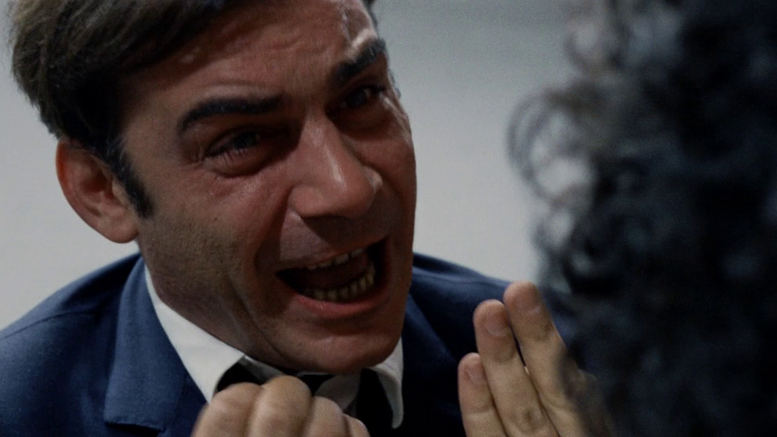 Partly in tribute to the late Marisa Merlini, I decided to dig out Destinazione Piovarolo, made just after she’d had considerable success in Pane, amore e fantasia (53) and it’s sequel Pane, amore e gelosia (54). In all honesty, despite being third billed she doesn’t have a great deal to do – this is a Totò film, after all, and all the other performers are basically subordinate to the star.
Partly in tribute to the late Marisa Merlini, I decided to dig out Destinazione Piovarolo, made just after she’d had considerable success in Pane, amore e fantasia (53) and it’s sequel Pane, amore e gelosia (54). In all honesty, despite being third billed she doesn’t have a great deal to do – this is a Totò film, after all, and all the other performers are basically subordinate to the star.
Set in the 1920’s, the story follows the hapless Antonio Lo Quaglio (Totò) who, having graduated bottom of his class at the railway academy, is sent off to be the station master at a small village called Piovarolo. Before long, he discovers why it was seen as a less than desirable posting: it constantly rains, the station itself is falling apart, there’s absolutely nothing in the way of entertainment and people spend their nights listening to an old buffoon repeating the same story about his friendship with Garibaldi over and over again in the village’s ramshackle bar. Antonio rapidly starts to suffer from serious boredom, but any chance of a transfer is hardly helped by his rather lacklustre view of the fascist authories.
Despite his faults, however, Antonio manages to woo one of his customers, a young teacher called Sara (Marisa Merlini), and the two of them rapidly get married. Many years pass: Antonio still hasn’t managed to get a transfer out of Piovarolo, and his relationship with Sara has become increasingly fractious. They have a teenage daughter, Mariuccia (Irene Cefaro), who dreams of moving to Rome and becoming a star. Meanwhile, the old buffoon dies and is revealed to be a character of some historical importance, the fascists become ever more powerful and Antonio looks increasingly like he’s going to spend the rest of his life in Piovarolo.
This was my first Totò film, and I was surprised: I thought it would be a lot more based around physical humour and slapstick, whereas it’s actually quite restrained and almost satirical. He actually comes across rather like an Italian Tony Hancock, someone who’s funny because he doesn’t know his own limitations, a pretentious fool who thinks he’s a lot better than he actually is. There’s definitely none of the gurning and pratfalls to be found in a Franco & Ciccio movie, say, and unlike their films this isn’t a spoof. With its ensemble of eccentric support characters, slightly anti-establishment sentiment and deluded protagonist, it also has a similar feel to the Ealing comedies being made in Britain at around the same time.
There are some pure comedy moments: Antonio thinking that he’s been finally transferred, only to discover that it’s merely that his station has been renamed, or attending a wedding on the lookout for a prospective bride, only to discover that each of the female attendees is uglier than the last. But a lot of the humour is in the dialogue (making it rather tough for non-Italian speakers) and of a more subtle nature.
Technically, everything is just fine. It’s a little stagebound, but some exteriors are thrown in to make things a bit more interesting (it was shot in the Amato theatre in Rome and with some location work on the outskirts of the city). Domenico Paolella was a former critic who moved into the director’s chair and made a succession of comedies throughout the 50s, before becoming better known internationally as a director of action films (he dabbled with some success in historical adventures, peplums, westerns, crime films and ‘naughty nun’ movies). He’d already made films with Alberto Sordi, Nino Taranti and Renato Rascel, and along with this he made one other collaboration with Totò, Il coraggio, which was also released in 1955.

